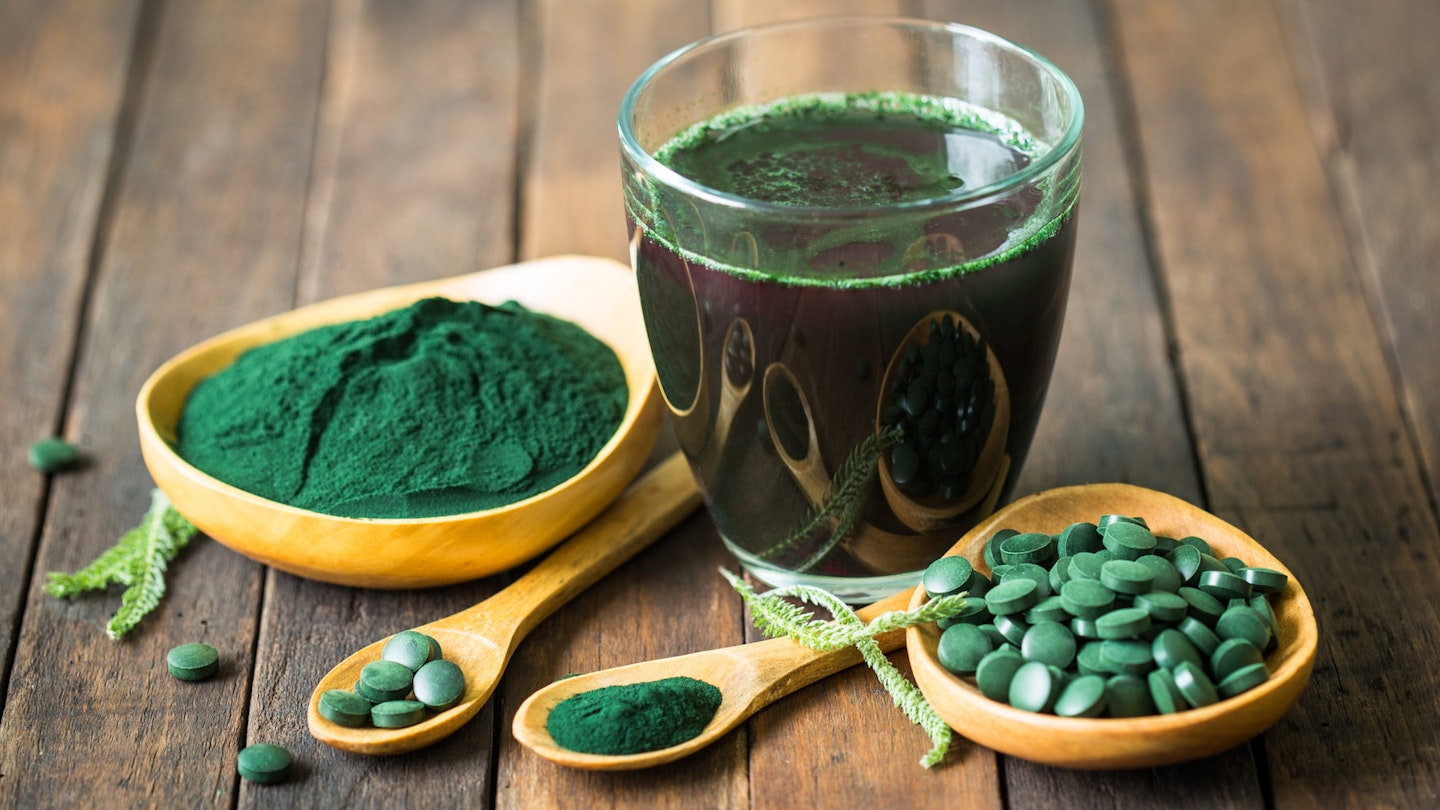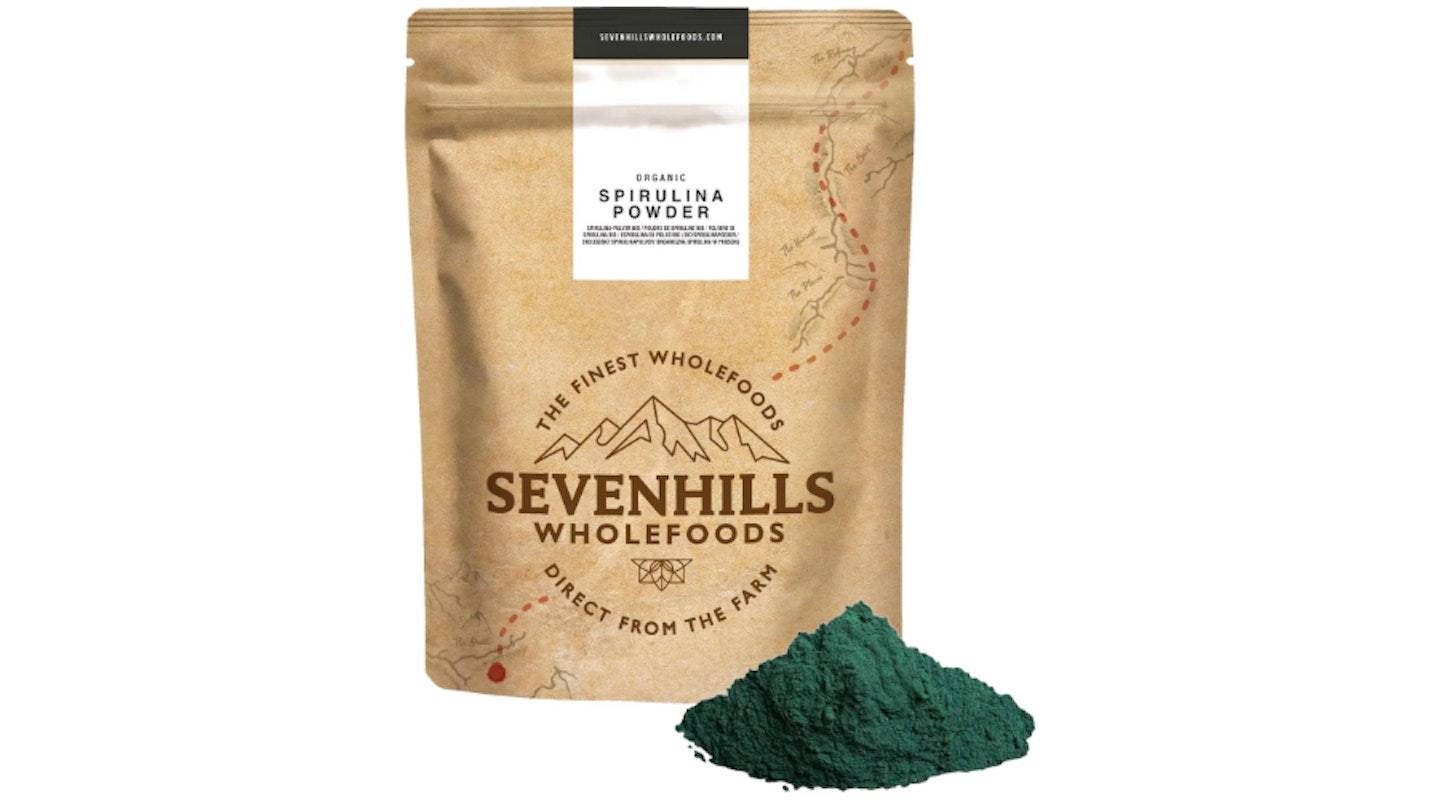When it comes to packing a nutritious punch, pound-for-pound spirulina is one of the best supplements you can add to your diet, but to ensure you're getting the most from it, you want to ensure you have the best spirulina supplements around. Here, we leverage our health and fitness expertise to select the best spirulina supplements in their two most popular forms: powder, which you can add to meals, and tablets, which provide all the benefits of spirulina in a quick, accessible form.
In the quest for improved health and well-being, many individuals are turning to nature's superfoods, and spirulina has been making waves for its extraordinary nutritional profile and potential health benefits. Spirulina, a vibrant blue-green algae, sometimes called 'green gold,' has a rich history and a spectrum of potential health advantages that have seen it cement itself as a dietary supplement and functional food that appeals to a diverse range of individuals seeking optimal nutrition.
The best spirulina supplements at a glance:
• The best spirulina tablets: Sevenhills Wholefoods Organic Spirulina 500mg Tablets - View on Amazon
• The best spirulina powder: Bulk Spirulina Powder - View on Bulk
• The best spirulina powder with added benefits: Bulk Complete Greens - View on Bulk
Relative to its weight, spirulina boasts high amounts of iron, riboflavin, niacin and copper. Magnesium and potassium are also present, as is omega-6 and omega-3. But that’s not all - it’s also a source of protein containing essential amino acids, which is typically harder to find in plant based protein sources. Some studies also suggest that spirulina is an antioxidant and anti-inflammatory, and assists in lowering cholesterol and blood pressure.
The best spirulina supplements
The best spirulina tablets
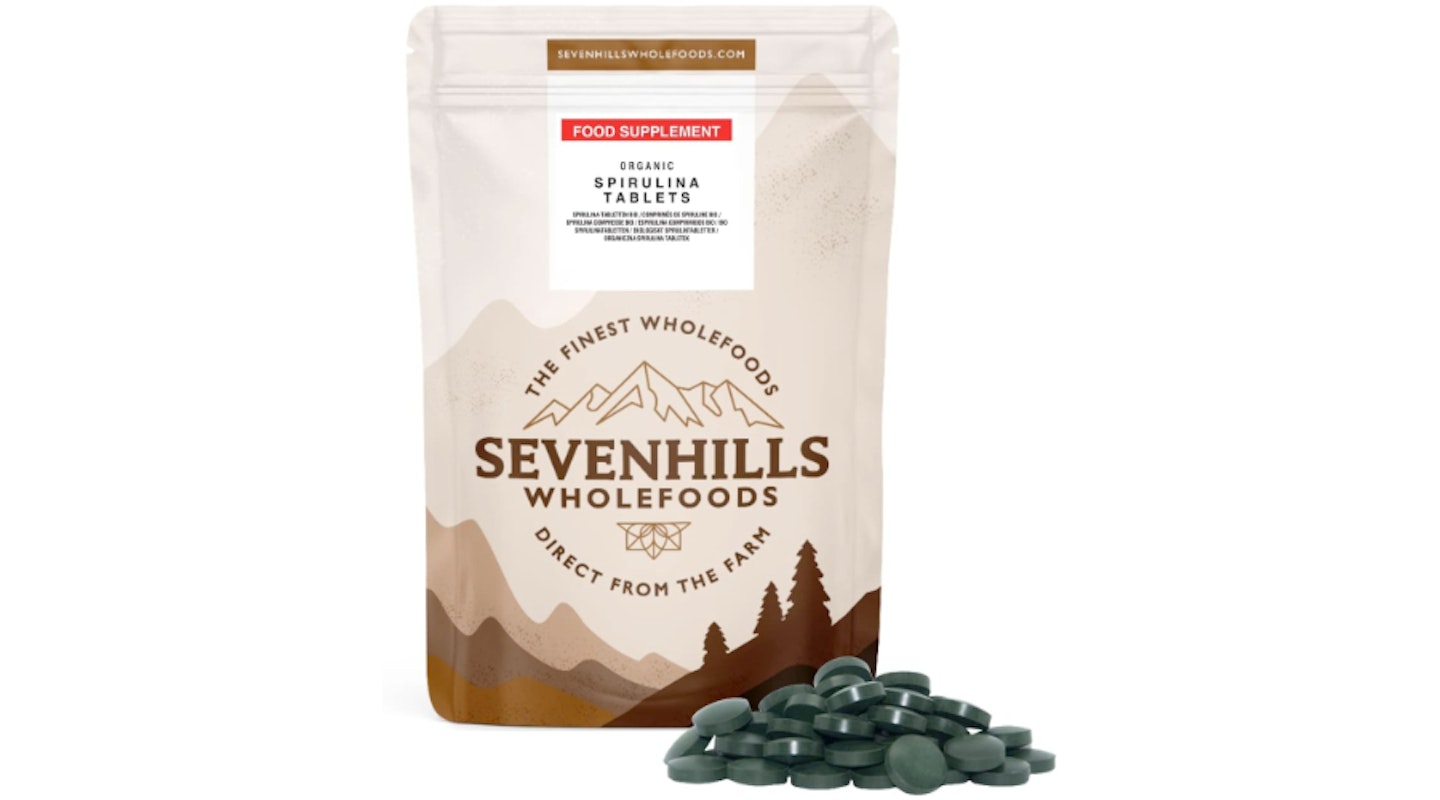
Sevenhills Wholefoods Organic Spirulina Tablets is an excellent choice, providing both quality and value for money. The tablets deliver 500mg of freshwater-grown and certified organic spirulina and can be taken in doses of up to six tablets. Available in packs of 500 to 2,000 tablets.
Pros
- Certified vegan, organic, and GMO and heavy metal-free
- Convenient to take
- Available in bulk
Cons
- The six-tablet dose is a bit of a mouthful
| Strength: | 500mg |
| Size: | 500g, 500 tablets, 2,000 tablets |
| Contains: | Spirulina |
- "I've been taking Sevenhills Wholefoods Organic Spirulina 500mg Tablets daily for about ten months. You cannot often feel the benefits of a supplement in the short term, but my dedication to the daily dose cemented within the first few weeks. I'm a vegetarian, so I initially opted for spirulina to get some nutrients that are harder to find in plant-based diets. However, I also found that the supplements have significantly helped my stomach - I've even taken a short break from the spirulina to make sure it is making a difference. I feel more comfortable, with significantly reduced bloat and generally better digestion. If my guts are happy, I'm happy.
"The dose of six tablets is a bit daunting at first, but now I can happily slam them down alongside multivitamins and a couple of vegan Omega oils pills without issue. I bought the 2,000 pack, which will see me through most of the year as it reaches about 333 days of supply. I'd recommend anyone to do the same." Tried and tested by William Lobley, Deputy Tech & Fitness Editor at What's The Best
The best spirulina powder
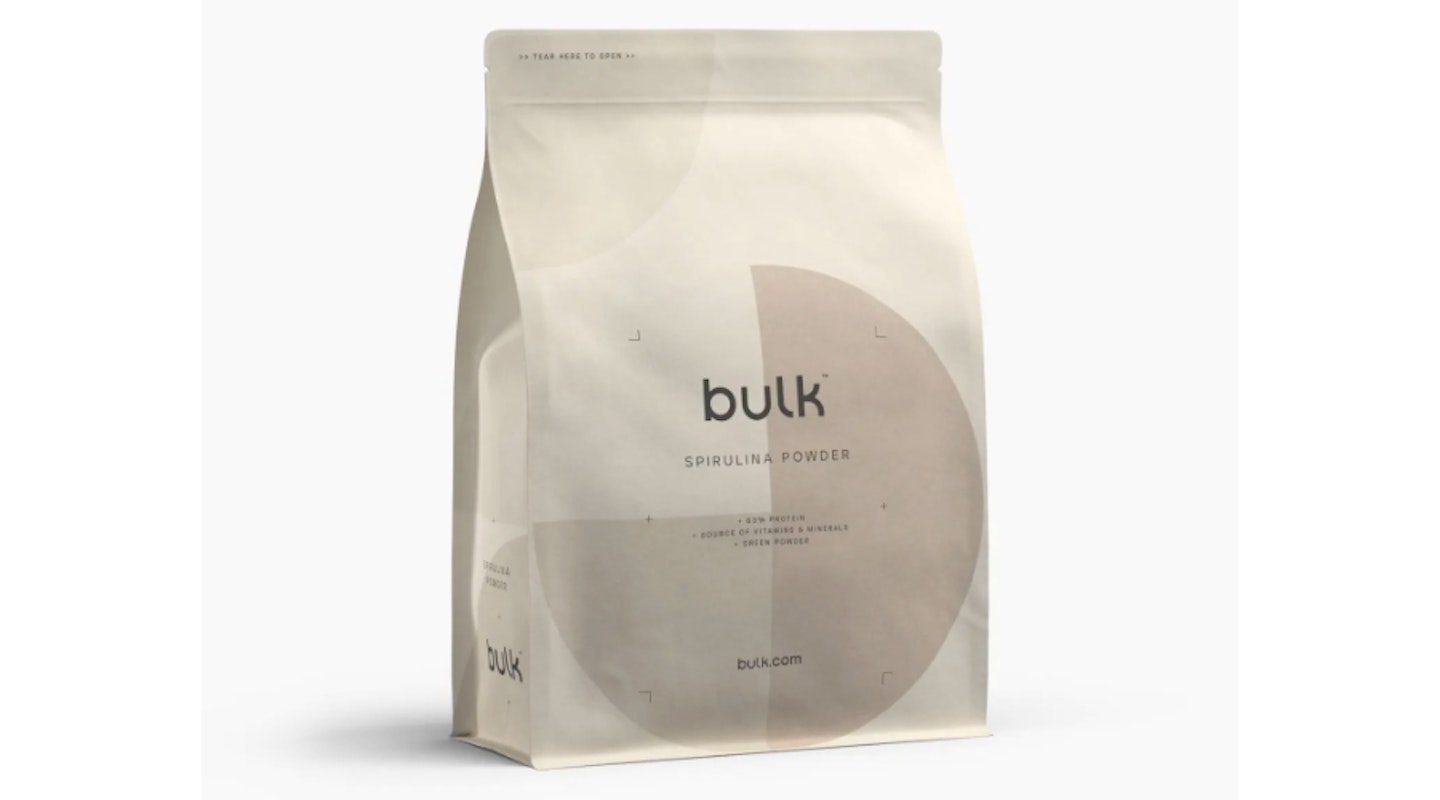
www.bulk.com
Bulk's spirulina powder is affordable and nutrient-dense, as it's pure spirulina. It comes with its scoop, which lets you accurately get the serving right every time - one and a half scoops for every 100ml of liquid. Available in sizes ranging from 100g to 1kg.
Pros
- Bulk is a reputable seller
- Scoop makes it perfect for adding to post-gym smoothies
- It works for people who can't swallow tablets
Cons
- Taste and colour aren't for everyone
- Not as convenient as tablets
| Size: | 100g, 500g, 1kg |
| Contains: | Spirulina |
- Customer review: "Generally feel better after using spirulina, seem to have a bit more energy and good to know I'm getting so many nutrients in a single scoop. I take it everyday."
The best spirulina powder in bulk
It's everything we love about our favourite spirulina tablets, albeit in powder form. Sevenhills produces freshwater-grown and certified organic spirulina, free from GMOs and heavy metals. As a powder, you have total control over the concentration of spirulina in your food and smoothies, allowing you to mix it up to taste. For drinks, we recommend using a blender to get a smoother finish. Available in sizes from 200g to 2kg.
Pros
- You can control the concentration
- Mixes well into food and drinks
- It works for people who can't swallow tablets
Cons
- Taste needs masking with more prominent flavours
- Not as convenient as tablets
| Size: | 200g, 500g, 1kg, 2kg |
| Contains: | Spirulina |
- Customer review: "As with all Sevenhills products, this is a high-quality powder. Very dark green and pure, you don't need much in your smoothie. I add a heaped teaspoon into about a litre of smoothie (for two), and that's plenty and doesn't overwhelm the other ingredients."
The best spirulina tablet with added nutrient
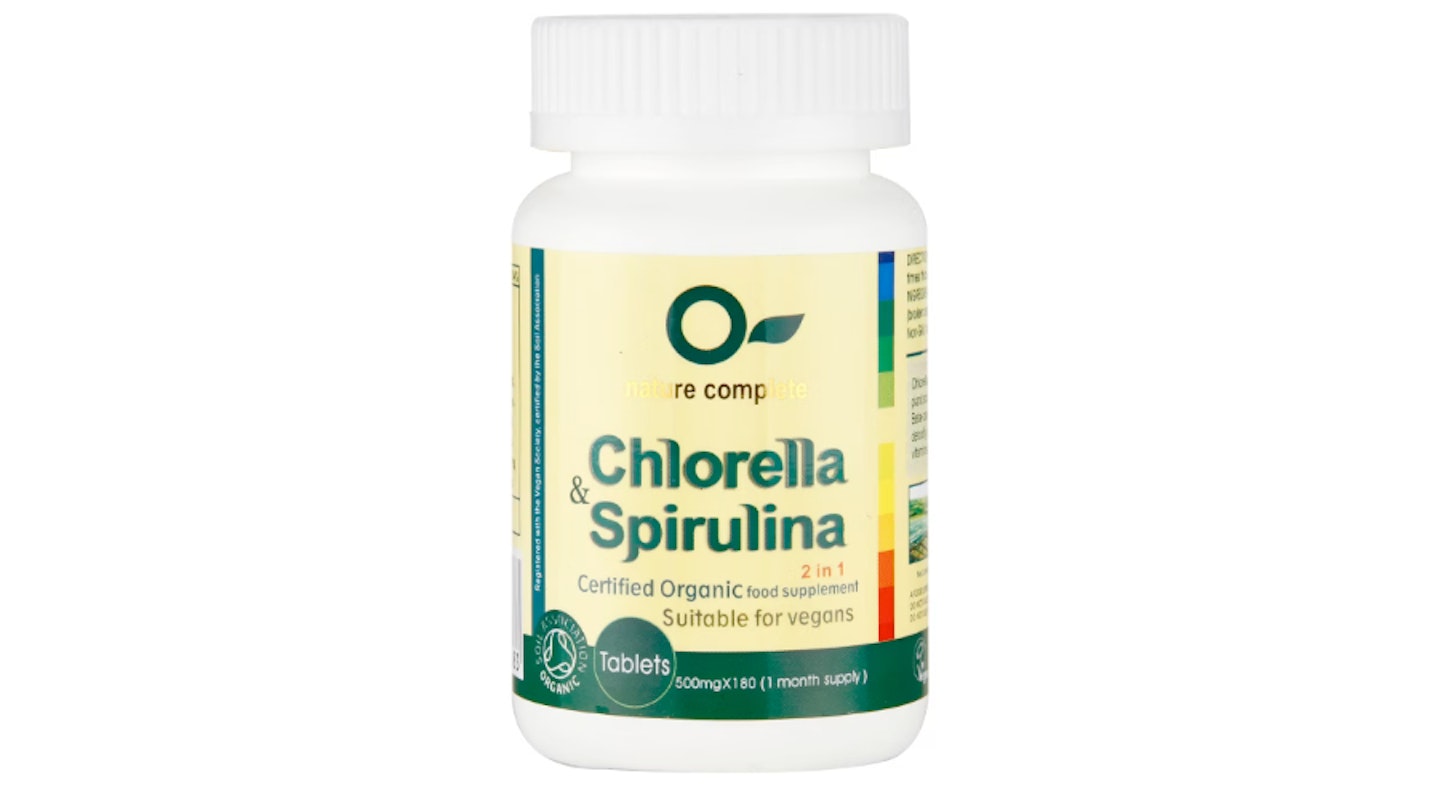
www.hollandandbarrett.com
Here, Nature Complete has bundled the dietary benefits of spirulina with those of chlorella, known for its iron content, detoxifying properties and supporting the immune system. These tablets are suitable for vegans, and 180 tablets will last you one month. However, Holland & Barrett does typically offer a discount when purchasing two months' worth.
Pros
- Benefits of spirulina and chlorella in one
- Suitable for vegans
Cons
- Expensive compared to spirulina-only tablets
| Strength: | 500mg |
| Size: | 180 tablets |
| Contains: | Spirulina and chlorella |
- Customer review: "Stopped taking this product for about a year, but find myself less energetic and healthy than I used to be. I have no choice but to go back for more of these amazing green organic supplements. It always works for my body. Truly great natural supplement."
The best spirulina powder with added benefits
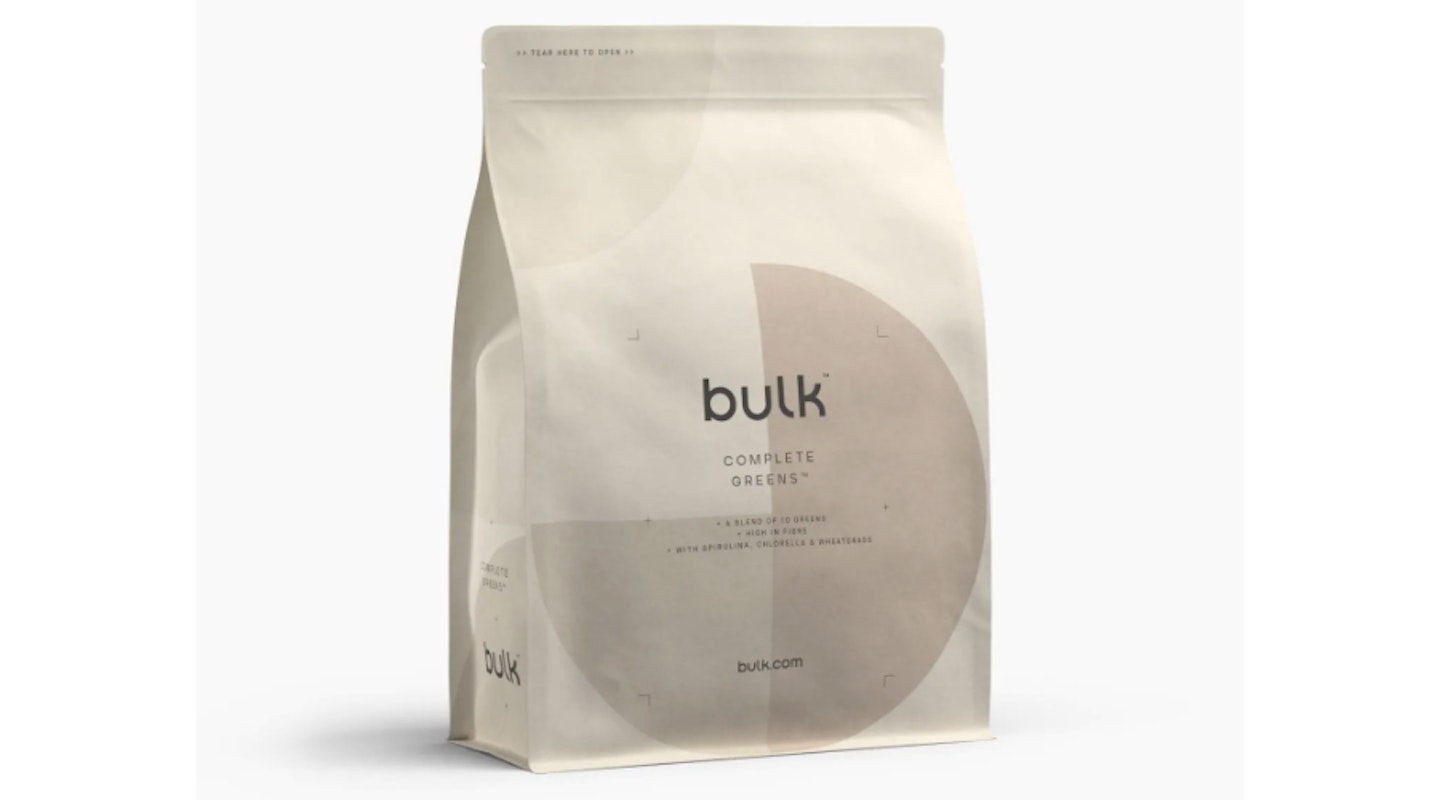
www.bulk.com
Why stop at just adding spirulina to your smoothies? Bulk Complete Greens combines all that is great about blue-green algae and adds another seven healthy green powders: chlorella, broccoli, pumpkin protein, spinach, alfalfa, moringa and kale. Full of vitamin goodness and all-important fibre, this is an efficient and effective powder for boosting your diet.
It's also a tasty way of getting the goodness, as it's available in Apple and Lime, Mixed Berry and Peach and Mango flavours. There's still an unflavoured option for those wanting to add Complete Greens to more diverse smoothies and recipes.
Pros
- Tasty flavours for easy sipping
- Efficient way of getting your veg in
- Huge nutritious hit in one
Cons
- More expensive than straight spirulina
| Size: | 100g, 500g, 1kg |
| Contains: | Spirulina, chlorella, broccoli, pumpkin protein, spinach, alfalfa, moringa, kale |
- Customer review: "Alright - I actually rate this stuff massively. I saw it everywhere online, with every influencer peddling it. I thought it had to be BS, but it's defo worth the hype, and I totally recommend it!"
FAQ: The best spirulina supplements
Tablets or powder?
Spirulina is readily available in both powdered and tablet form. The potential health benefits aren't affected by the state, but there are some pros and cons to each method of delivery.
Tablets are convenient, travel well and are easy to take - add them to your morning multivitamin and Omega pills. However, to get the concentration of spirulina you need, you could take as many as six tablets - that's a lot, and some people may find this challenging.
Powder is a viable alternative, and it's much easier to get a high concentration of spirulina mixed into your food or smoothies. The nutrients are also absorbed quicker as a powder - however, you do have to contend with the taste and the green tinge. However, this can be combated by purchasing a flavoured powder or mixing it with strong-flavoured ingredients.
Ultimately, the choice is yours.
What is spirulina?
Spirulina is a microscopic, spiral-shaped, blue-green alga that thrives in warm, alkaline water bodies. This remarkable microorganism has been a source of nourishment for centuries, with documented use by the Aztecs in Mexico and Kanem-Bornu tribes around Lake Chad in Africa. Its striking green hue is attributable to chlorophyll, a natural pigment involved in photosynthesis.
This microscopic powerhouse is jam-packed with an array of essential nutrients that have earned it the status of a superfood. From high-quality protein to many vitamins, minerals, and antioxidants, spirulina delivers a well-rounded nutritional punch.
Spirulina is consumable in various forms. It's commonly taken as a dietary supplement in tablet or powder form. It's easily added to smoothies and juices or incorporated into recipes like energy bars, soups or salads.
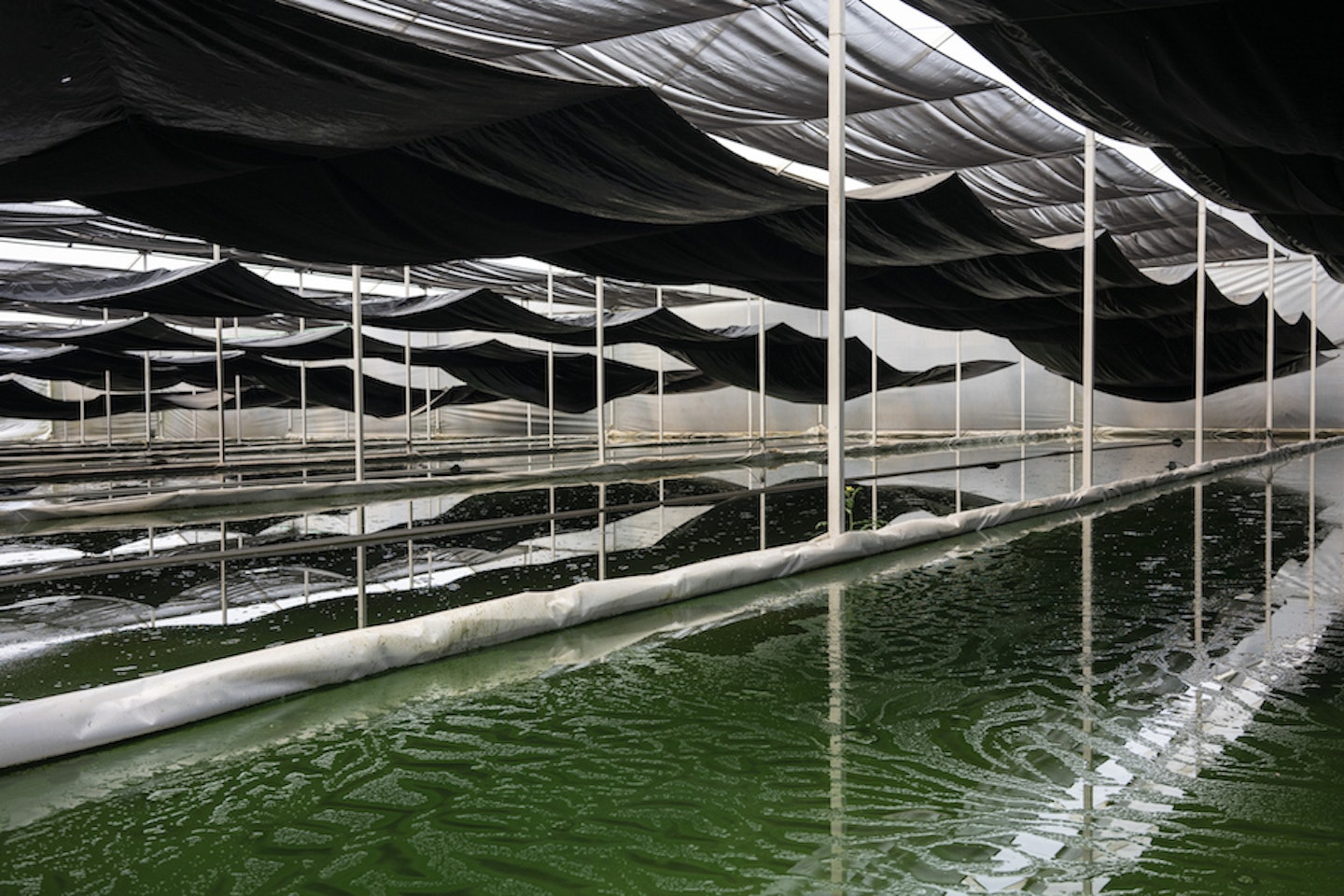
Nutritional benefits of spirulina
According to the United States Department of Agriculture, 7g of spirulina contains:
• 4g of protein
• 1.7g of carbohydrate
• 0.5g of fat
• 8.4mg of calcium
• 2mg of iron
• 13.6mg of magnesium
• 8.26mg of phosphorus
• 95.2mg of potassium
• 73.5mg of sodium
• 0.7mg of vitamin C
It also contains vitamins A, B6, and K and thiamin, riboflavin, niacin, and folate.
The nutritional content of spirulina is nothing short of impressive. Gram-for-gram spirulina contains more protein than many commonly consumed foods, making it an attractive option for vegetarians and vegans looking to boost their protein intake - though you'll still want a dedicated vegan protein powder for a serious boost in protein.
Additionally, spirulina is a notable source of iron, which is typically scarce in plant-based diets. Its antioxidant content, including beta-carotene and phycocyanin, supports the body's defence against oxidative stress.
Some claim that spirulina is rich in vitamin B12. However, there is some debate in the scientific community as to whether the particular type of vitamin B12 in spirulina - technically pseudovitamin B12 - has any effect. Suppose you are specifically looking to boost your B12 intake. In that case, we recommend getting a dedicated vitamin B12 supplement - or upping how much Marmite you eat if you're a fan, as it's also abundant in this spread.
Exploring the potential health benefits
Beyond its exceptional nutritional content, spirulina has many other potential health benefits it may offer. Its role in boosting immune function, reducing cholesterol levels, and mitigating inflammation has garnered attention from the scientific and health communities. At the same time, some studies have also suggested that spirulina may support weight management by enhancing satiety - the feeling of being full - and metabolism.
It's important to note that while spirulina presents a wealth of potential benefits, it is not a fix-all remedy, and its effects may vary from person to person. It is essential to approach spirulina as a balanced and diverse diet component.
Is spirulina safe to consume?
Spirulina is generally safe for most people when consumed in recommended amounts. However, it may cause side effects in some individuals, such as digestive issues or allergic reactions. Consult a healthcare professional before adding spirulina to your diet, especially if you have underlying health conditions.
Contaminated or low-quality spirulina products can also pose risks. Purchasing spirulina from reputable sources, such as those listed above, is essential.
Can spirulina be consumed during pregnancy and breastfeeding?
Pregnant and breastfeeding women should consult their healthcare providers before taking spirulina supplements.
Is spirulina suitable for vegetarians and vegans?
Yes, spirulina is an excellent source of plant-based protein. It is often recommended for vegetarians and vegans to supplement their diet with essential nutrients like iron and essential amino acids.
Can spirulina help with weight loss?
Some studies suggest that spirulina may aid in weight management by promoting feelings of fullness and supporting metabolism. However, it should be seen as something other than a standalone solution for weight loss; a balanced diet and regular exercise are still crucial.
William Lobley is a Deputy Editor and reviewer for What's The Best, specialising in technology and fitness.
Subscribe to the What’s The Best Newsletter to keep up to date with more of the latest reviews and recommendations from the rest of the What’s The Best team.
